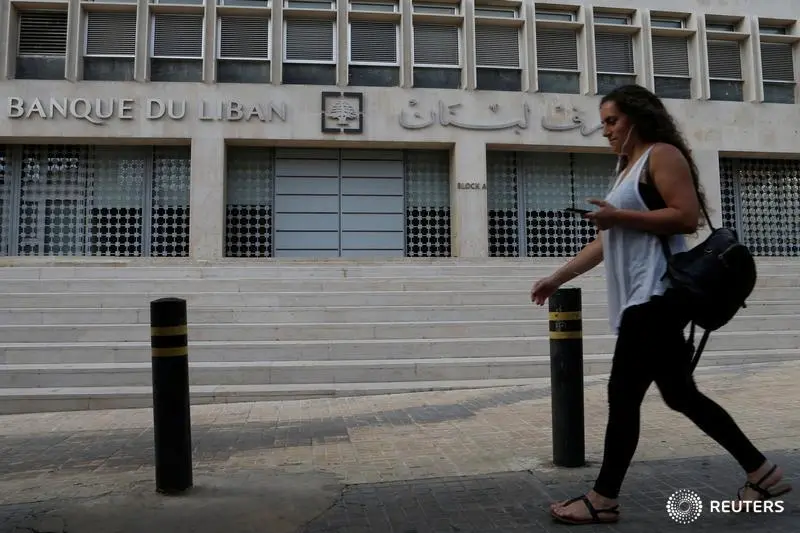PHOTO
BEIRUT - Lebanon's deputy central bank governors could all resign if no successor is appointed when current chief Riad Salameh's term ends this month, one of the deputies said Thursday, raising the prospect of a leaderless central bank amid a financial crisis.
Salameh, whose 30-year tenure as governor has been stained lately by charges at home and abroad of embezzlement of public funds in Lebanon, is expected to leave his post when his term ends in late July. He denies the charges.
Lebanese authorities have not named a successor, with political factions stuck in a stalemate that has also left the presidency unfilled for more than eight months and cabinet operating in a caretaker capacity for over a year.
"In the absence of a comprehensive plan which allows us as monetary policymakers to take the required actions to protect the best interest of the country, it becomes urgent to take difficult choices," deputy governor Salim Chahine told Reuters.
"Resignation is a possible outcome," he said. Another central bank source familiar with the thinking of Wassim Mansouri, the first deputy governor, told Reuters that all four would resign if there was no successor to Salameh.
That source said Mansouri, who would have been first to take over should a governor not be appointed, saw the job as "a ball of fire" given the prolonged economic meltdown.
Chahine and the source spoke to Reuters following a rare statement signed by all four deputy governors saying the central bank could not be run in a caretaker capacity at such a sensitive time and that authorities must appoint a new head.
"We see it as our duty to stress the necessity of appointing a governor... as soon as possible, otherwise we will be forced to take the action we deem appropriate for the public interest," the statement said, without explaining what the action may be.
Lebanon's economy began to unravel in 2019 following decades of corruption and profligate spending by ruling politicians.
The nearly four-year economic meltdown has cost the local currency roughly 98% of its value, seen GDP contract by 40%, pushed inflation into triple-digits and drained two-thirds of the central bank's foreign currency reserves, according to the International Monetary Fund.
The IMF said vested interests in Lebanon have hampered a financial reform programme that would have unlocked $3 billion from the lender of last resort.
(Reporting by Laila Bassam and Maya Gebeily; Editing by Toby Chopra and Andrew Heavens)



















